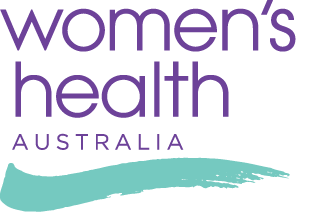Data access FAQs
Follow the instructions outlined in the “Applying for data” page and make an application using the ALSWH data users online portal.
ALSWH survey and linked administrative data can be used in a grant application, provided that its use is appropriate, and you have obtained prior permission from the ALSWH Data Access Committee. To do this:
- Discuss your project with an ALSWH project liaison person. More information about the project liaison can be found here [https://alswh.org.au/about/people/project-liaisons/].
- If the project liaison person decides that use of the ALSWH is appropriate, review the data access information here [https://alswh.org.au/for-data-users/applying-for-data/full-dataset-and-linked-data/]
- Complete the draft application/ALSWH EoI Proforma and, where relevant, the ALSWH Linked Data Variable Request Form and submit it to ALSWH General Enquiries (alswh@uq.edu.au) and copy in the ALSWH project liaison person, for preliminary approval (pending the outcome of the grant round).
If the grant is successful, a full expression of interest (EoI) must then be submitted via the ALSWH Data Users Portal [https://portal.alswh.org.au].
Use of the Core ALSWH dataset in a grant application does not require permission from the ALSWH Data Access Committee [https://alswh.org.au/for-data-users/applying-for-data/core-dataset/] but does require approval from the ALSWH for access. We recommend applying for approval before submitting the grant application and checking that the data are sufficient for the aims of the grant.
Women’s Health Australia (also known as the Australian Longitudinal Study on Women’s Health) has access to a number of State, Territory, and National datasets. State-based datasets linked to survey participants include Admitted Patients, Emergency Department, and Perinatal collections. National collections include MBS, PBS, Aged Care, and Cancer. More information can be found here.
It is not necessary to obtain separate ethics for survey data as the ALSWH Data Access Committee provides this coverage, however you should check with your own institution’s policies.
Linked data projects
If you include linked health record data (such MBS, Admitted Patients) in your EoI, application for HREC and Data Custodian approval will usually* be managed by ALSWH on your behalf. Depending on the data sources involved, you may be required to sign additional documents, which we will submit under amendments to our existing HREC protocols. Please be aware that this is likely to involve additional processing time (over and above the EoI approval period), also, that ALSWH’s ability to act on your behalf depends on the quality of the information you provide in your application for data. Please also note that no more than two external (non-ALSWH) collaborators should be nominated to access linked data per EoI (unless a student will be undertaking the analysis, in which case, the supervisor should also be nominated). You must also nominate an ALSWH Liaison to collaborate on your project.
*Exception:
- Your project includes additional external data sources other those for which ALSWH has approval. In this case, you should apply to all necessary HRECs on your own behalf. The ALSWH Data Access Team can offer advice on the information to include in any linked data applications.
There are six submission dates per year. The timeline from the application closing date to approval is approximately two months (HREC approvals for EoIs involving linked data require additional time before data access can be granted). Application closing dates can be found here.
Your application will undergo an initial administrative check, if it is determined at this stage that more information is required you will be contacted and asked to revise your application prior to it being circulated for full committee review.
Comments will be provided to you following the Data Access Committee review. At this stage you may be asked to revise your application to address Committee concerns, prior to final approval. If the EoI is not re-submitted within six months, the application will be closed unless the researchers have informed ALSWH that additional time is required for resubmission.
Post graduate students are encouraged to lead their own projects, particularly where the research will contribute significantly towards their award. An exception to this is where linked data are being requested, in this case the primary supervisor needs to be listed as the lead collaborator.
Once all nominated collaborators have signed and returned the required documentation (statement of data use document and confidentiality statement, where necessary) the survey data will be prepared and delivered via Cloudstor.
In addition to the requirements above, HREC and Data Custodian approval for you to access each linked dataset listed on your EoI must be received by ALSWH (this will be obtained on your behalf, subject to full and accurate details being provided in your EoI). While we make every effort to expedite this process, depending on the number of datasets and custodians involved, this may require several months over and above the standard EoI processing time of two months.
ALSWH is a public resource funded by the Australian Government Department of Health and Aged Care and does not charge any fees to access survey data.
However, if your project involves linked data, you may need to budget for:
- travel to one of the approved study sites (School of Public Health at The University of Queensland, or Priority Research Centre for Generational Health and Ageing at The University of Newcastle); OR
- remote access via SURE (access information is available on the SURE web site).
Amendments are required when:
- New data are required (a new age cohort, specific data such as Food Frequency Questionnaire, Birth Events dataset, Medications, Cause of Death or linked data)
- The research question/s change or a new research question is added
- The analysis plan changes.
Complete the EoI proforma doucment and submit to alswh@uq.edu.au. Please ensure your ALSWH Liaison person has reviewed your amendment before submitting.
Adding additional collaborators to an existing project is considered an update. Such updates can be requested by emailing alswh@uq.edu.au
Please note – any additional collaborators are required to sign the relevant documentation prior to accessing ALSWH data.
If your project involves linked data, changing the name of the collaborator who is responsible for analysis of the linked data will require new HREC / Data Custodian approvals for each linked dataset (see under “Linked Data Projects”) unless the new collaborator is already on the list of currently approved personnel for each linked dataset in question. New researches must sign data use undertakings for each collection accessed.
The addition of the latest survey of an already approved dataset project is considered an update and no additional approvals are required. The same applies to requests for refreshed datasets. Such updates can be requested by emailing alswh@uq.edu.au
What do I need to do before I publish or present findings using ALSWH data or ALSWH data that has been linked with external datasets (linked data)?
Your manuscript or abstract should be reviewed and approved by your ALSWH Liaison person prior to submission. Please ensure the standard ALSWH acknowledgement is used, as well as the acknowledgement for the Food Frequency Data if these data were used.
In addition, if you are reporting results which used linked data:
- For some linked data collections, Data Custodian preview of any proposed publication (including manuscripts, reports, presentations, and posters) is a condition of ALSWH’s Data Use Agreements.
- You must correctly acknowledge the contribution of every data source and data linkage unit responsible for the data reported in your findings. Please use the standard acknowledgement text provided by ALSWH.
More information may be found here.
No, it is not necessary to submit your thesis for review by ALSWH, however your liaison person should be satisfied that the ALSWH data have been used, and acknowledged, appropriately prior to submission. However we do ask for a lay synopsis or abstract of your thesis once you have been awarded your degree.
If your project includes linked data,, papers may require pre-publication review by the data custodians. This will only apply to your thesis if the specific findings from linked data have not already been reviewed ad published. More information can be found here.
Progress reports are requested at least annually, the lead collaborator is responsible for completing these reports. Reports are submitted via the online portal.
Please email alswh@uq.edu.au to advise the completion of the project and provide a final report. The final report should include a summary of your project that explains your research question/s, the most significant findings and a summary of research outcomes from the project.
Please note that all project datasets supplied by ALSWH are copies. Therefore, there are no ethical requirements for archiving, over and above those of the responsible Project Team. (Issues for your team to consider include: the requirements of your own institutions and/or funding bodies; the retention of analysis programs and derived datasets; any issues which may arise from publications). The same advice applies to project datasets accessed through the SURE facility.
MatCH (Mothers and their Children’s Health) is an ALSWH substudy. It involved a subset of women from the 1973-78 Cohort (N=3048) who took part in a survey in 2016 about their children, then aged under 13 years (N=5842). MatCH data (including survey data and linked child education datasets) can be requested on your ALSWH EoI (See Applying for data).

